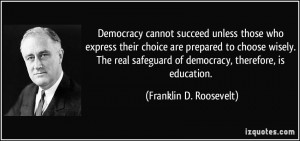© Paul Lachelier 2014. All rights reserved.
What is the good citizen, and how can modern democratic societies nurture more good citizens?
These questions have animated me as a sociologist for nearly two decades now, and they are a key impetus for Learning Life.
As I’ve noted in my own research, some critics of democracy enjoy saying that Americans live in a republic, not a democracy. Our founders, these critics like to add, never intended a democracy, which they often associated with mob rule, but rather a republic governed by wiser representatives chosen from among the people. There is some truth to this, but some of the founders did advocate nurturing an informed and engaged citizenry, and subsequent political leaders in the United States and elsewhere have called again and again for government “of, by and for the people,” as Abraham Lincoln famously put it.
 Today, in retrospect, it seems fairer to argue that a republic requires democracy of some kind. That may seem paradoxical if one defines a republic as rule by representatives and democracy as rule by the people themselves. However, what I mean is that elected representatives, left to rule alone without the scrutiny and involvement of the people, may be more likely to advance their own interests and those of their friends than those of the people. Ensuring our representatives more often than not advance the interests of the people requires informed and engaged citizens – that is, some measure of democracy – to keep them honest.
Today, in retrospect, it seems fairer to argue that a republic requires democracy of some kind. That may seem paradoxical if one defines a republic as rule by representatives and democracy as rule by the people themselves. However, what I mean is that elected representatives, left to rule alone without the scrutiny and involvement of the people, may be more likely to advance their own interests and those of their friends than those of the people. Ensuring our representatives more often than not advance the interests of the people requires informed and engaged citizens – that is, some measure of democracy – to keep them honest.
Thus, informed and engaged individuals are good citizens, and good citizens can help ensure governments, local to global, are more responsive and accountable to the people. The trouble, as the French political thinker Benjamin Constant noted so well in the early 19th century, is that it’s usually difficult to get most modern citizens to stay informed and engaged because they are so absorbed in their private pursuits of happiness at work and leisure with family, friends and colleagues.
There are no lack of public proposals for ways to nurture informed and engaged citizens, from civics in schools to more open government, citizen issue assemblies, and more democratically financed elections (e.g., low dollar limits on campaign contributions to encourage candidates to engage more ordinary citizens rather than wealthy donors). Many of these public proposals can indeed help inform and engage more citizens, but they ignore the powerful lure away from public engagement that private life poses.
Accordingly, citizen engagement demands not just public solutions, but private ones. As the American sociologist Herbert Gans wisely put it, “if citizens cannot or will not come to political institutions to participate, these institutions have to come to them” (Gans 1988: 123). Gans mostly had in mind ways to make government and media more representative of and responsive to the people. In contrast, I have in mind ways in which private life can nudge people into public life, and in particular how business can engage people more in their government and communities, local to global.
I don’t pretend to have all the answers, but I find the burgeoning interest in social entrepreneurialism – in essence, using business to do good – encouraging. More and more for-profits and non-profits alike are selling goods – from food to soap to shoes – to do good in the world, and in so doing, informing their customers a little about social problems and ways to address them.
References
Constant, Benjamin. 1997 [1833]. “The Liberty of the Ancients Compared with that of the Moderns” in The Libertarian Reader, ed. David Boaz. New York: The Free Press.
Gans, Herbert J. 1988. Middle American Individualism: Political Participation and Liberal Democracy. New York: Oxford University Press.
Lachelier, Paul. 2007. “Democracy, Individualism and the Civil-Civic Citizen: Young American Professionals Talk about Community, Politics and Citizenship.” Doctoral dissertation, University of Wisconsin-Madison.